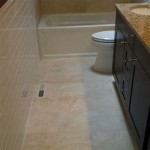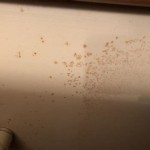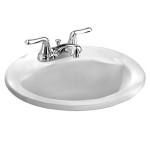Why Does My Bathroom Smell Moldy?
A musty or moldy odor in a bathroom can be an unpleasant and concerning issue. While occasional dampness is typical in a bathroom, persistent moldy smells indicate a problem. Understanding the reasons behind this odor can help homeowners address the issue effectively. This article will delve into the common causes of moldy bathroom odors and provide insights on how to eliminate them.
1. Excess Moisture: The Root of the Problem
Bathrooms are inherently susceptible to moisture due to showering, bathing, and other activities involving water. When moisture lingers in the air or on surfaces, it creates a breeding ground for mold and mildew. Mold thrives in warm, humid environments, and bathroom conditions often meet these criteria.
Poor ventilation is a primary contributor to excess moisture in bathrooms. Without adequate airflow, steam and condensation from showers and baths remain trapped, increasing humidity levels. Insufficient ventilation can result from inadequate or malfunctioning exhaust fans, closed windows, or lack of natural air circulation.
Leaking pipes or fixtures can also contribute to chronic moisture problems. Even a slow drip can lead to persistent dampness, providing a conducive environment for mold growth.
2. Mold Growth: The Culprit
Mold, a type of fungi, grows in damp areas, releasing spores that can trigger allergic reactions, respiratory problems, and other health issues. When mold grows in bathrooms, it can leave behind a distinct musty odor, indicating its presence.
Mold thrives where there is a source of moisture, such as shower stalls, bathtubs, grout lines, and even behind walls. It often appears as black, white, or green discoloration on surfaces and can grow hidden behind walls or under flooring.
Mold thrives in dark, damp environments, making it challenging to detect at times. The odor can be a subtle clue, prompting homeowners to investigate potential mold growth.
3. Other Contributors to Moldy Bathroom Odors
While excess moisture and mold growth are the primary causes of moldy bathroom odors, other factors can contribute to the problem.
Poor Cleaning Practices: Inadequate cleaning routines allow dirt, grime, and soap scum to accumulate, creating a breeding ground for mold. Thorough cleaning, particularly in areas prone to moisture, is crucial.
Poor Drainage: Clogged drains, slow-draining sinks, or overflowing toilets can cause water to linger, creating damp conditions that promote mold growth. Maintaining proper drainage is essential to prevent moisture buildup.
Older Plumbing: Older plumbing systems may have leaks or corrosion that contribute to moisture problems. Over time, pipes can develop pinhole leaks, leading to undetected dampness and mold growth.
Lack of Sunlight: While bathrooms rarely have direct sunlight, inadequate natural light can contribute to a moist environment. Ensuring some natural light, even indirect, can help limit moisture buildup.

Why Does My Bathroom Smell Like Mildew Bioclean Remediation Llc

Why Does My Bathroom Smell Like Mildew Bioclean Remediation Llc

How To Remove The Smell Of Mold In Your Bathroom Home Renovations Ottawa Pros

What To Do When The Bathroom Sink Smells Like Mildew Mold Smell

Help My Bathroom Smells Musty What Should I Do Phyxter Home Services

Bathroom Smells Musty Causes And Solutions

Moldy Smelling Water From Bathroom Faucet Hometalk

How To Prevent Bathroom Mold From Taking Over Allergy Air

Why Does My Bathroom Smell Like Sewage Metro Flow Plumbing

A Plumber In Port Melbourne Explains That Musty Bathroom Smell
Related Posts







